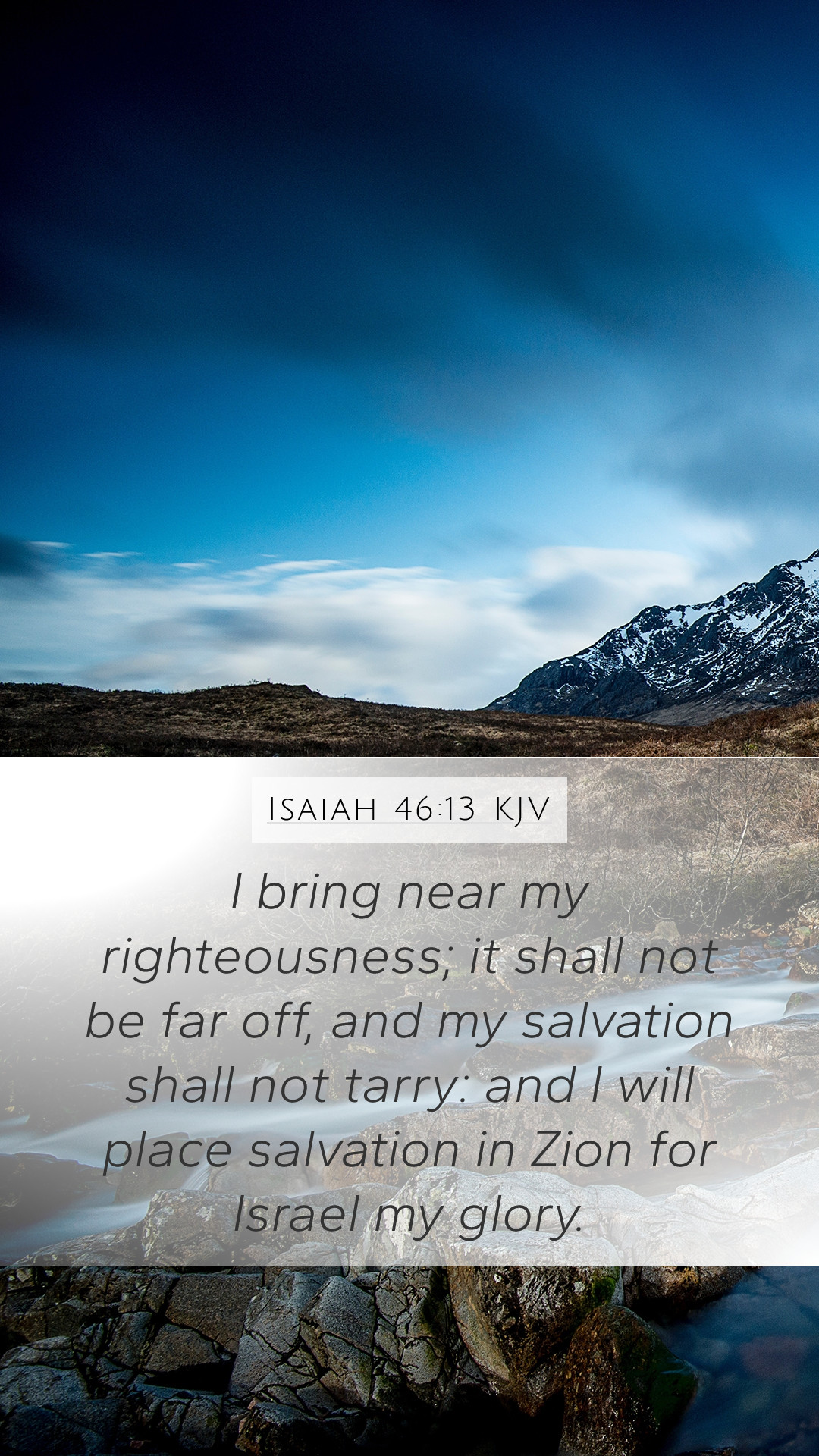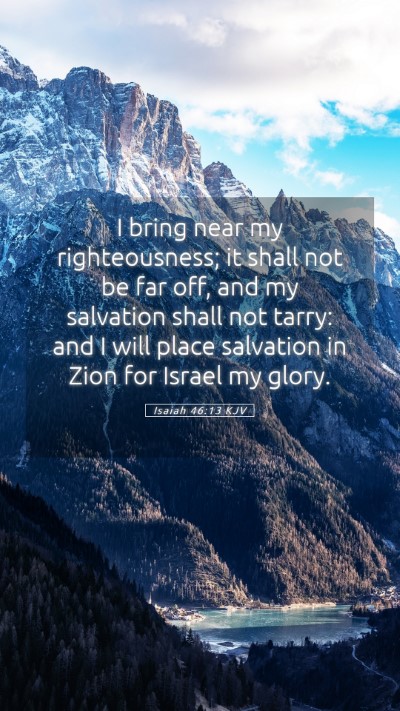Understanding Isaiah 46:13
Isaiah 46:13 states, "I bring near my righteousness; it is not far off, and my salvation will not delay; I will put salvation in Zion, for Israel my glory." This verse serves as a profound declaration of God's intention to fulfill His promises of righteousness and salvation. This analysis combines insights from notable public domain commentaries by Matthew Henry, Albert Barnes, and Adam Clarke to provide a comprehensive understanding of this passage.
Bible Verse Meaning
Isaiah 46:13 reflects God’s assurance to His people that His righteousness and salvation are imminent. It emphasizes that God's plans, including His redemptive work, are always on schedule and never delayed, revealing a core aspect of divine faithfulness.
Analysis from Matthew Henry
Matthew Henry highlights that this verse announces the nearness of God's righteousness. He mentions that this promise is not based on human actions; rather, it is a work of divine grace. The reference to Zion signifies the chosen place of God's dwelling, and Henry notes that God's salvation is aimed particularly at Israel, which symbolizes His chosen people. The phrase "my glory" emphasizes God's purpose in his redemptive action, signifying that the fulfillment of these promises ultimately brings glory to Him.
Insights from Albert Barnes
Albert Barnes elaborates on the meaning of "bring near my righteousness," suggesting it conveys the idea that God is actively preparing to act in righteousness, contrasting human failures with divine perfection. He interprets "salvation" as not merely physical deliverance but spiritual restoration. Barnes emphasizes the urgency implicit in the text—God is ready to intervene in the affairs of humankind at the appointed time.
Commentary by Adam Clarke
Adam Clarke provides a contextual examination of Zion, explaining its significance as a symbol for the city of God and His covenant people. He stresses that in the context of Israel's historical struggles, this promise serves as a source of hope and encouragement. Clarke clarifies that God's righteousness is closely tied to His commitment to bring about salvation—setting the stage for both immediate deliverance and long-term spiritual restoration.
Key Themes
- Divine Assurance: The promise of God's righteousness emphasizes His reliable nature.
- Righteousness and Salvation: The intertwinement of God's righteousness and the salvation He offers is a central theme.
- Zion's Significance: Zion represents not just a physical location, but a key expression of God's covenant relationship with His people.
- Glory of God: The ultimate purpose of salvation is to glorify God, highlighting the relational aspect of human-divine interaction.
Application and Reflection
For individuals engaged in Bible study groups or online Bible study, Isaiah 46:13 can serve as a powerful reminder of God's faithfulness in personal and communal life. The verse encourages believers to reflect on how they can live in light of God's promised righteousness and salvation, reinforcing themes of hope and trust in God's timing.
Cross References
- Isaiah 51:5 - A promise of righteousness and a call for attention.
- Romans 1:16-17 - The righteousness of God revealed through faith.
- Psalm 37:39-40 - The salvation of the righteous and their refuge in God.
Conclusion
In conclusion, Isaiah 46:13 encapsulates a profound message of hope, assuring us of God's unwavering commitment to righteousness and salvation. By utilizing various Bible study tools and resources, believers can delve deeper into this passage, discovering its relevance to personal lives and the overarching narrative of Scripture. This verse invites us to consider not only the historical context but also the personal application of God’s promises in our daily existence, reinforcing that we are never far from the reach of divine grace.


